In the past few years, the cost associated with acquiring new customers has increased 60%. Marketing is getting more expensive and customers have a greater option to switch brands than they ever had. Under the circumstances, companies have to develop and simply get smarter to survive. Many companies are looking for ways to improve customer acquisition. Maximizing the ROI of marketing and reducing acquisition costs are the top priorities among most companies.
Customer acquisition is finding new customers and clients for the business. The process is guided by a smooth, systematic, and sustainable acquisition strategy that has the capacity to evolve and inculcate new trends and changes. Customer acquisition is important for businesses of all ages and magnitude. It allows the business to generate money to meet costs, pat employees, and reinvest in growth. Evidence suggests that it also results in traction for investors, partners, and influencers. Customer acquisition systematically attracts and converts potential customers and grows the base, making the investors happier. Acquisition marketing allows for implementing different strategies to market products and services to new customers. It requires collaboration and alignment between the marketing and the customer services teams. Acquisition marketing differs from other ways of marketing because it targets consumers who have already been acquainted with your brand and might make a purchase. It also involves your customer services team.
‘Growth Hacking’ is a very popular set of practices that are specifically more popular with new startups. Startups want to grow quickly and acquire million of users and dollars in revenue. Growth hacking is all about accelerated growth. A job different from what a classic marketeer can do. While a classical marketeer takes careful consideration of factors like budgets, expenses, a conversion rates, a growth hacker doesn’t care much about all of that. The only real consideration is accelerated growth—by all means. The point of focus in growth hacking is the focus. The startup culture sometimes allows such a focal point because they have to be analytical, creative, and original to create room in the market. The core elements of growth hacking are: a team that is cross-functional and involves feedback from marketing and technical product development; and the extensive use of data analysis to gain useful insights into consumer behavior.
Growth hacking involves not only customer acquisition but also customer activation, retention, and monetization. Therefore, we can easily say that it is a more holistic approach. Some people limit growth hacking to tactics such as A/B testing and Google ads because the definition might suggest that anything that contributes to generating rapid growth is growth hacking. However, growth hacking is a more systematic process that involves strategic brand marketing (positioning & differentiation) and tactical performance marketing (content marketing & paid acquisition). It is a process that develops an agile development principle that leads to growth hacking practices. Growth hacking is hard work. Growth marketers have to target hundreds of competitive keywords with original content. They also have to reply individually to every tweet that they get. They spend a substantial time cross-linking their blog posts to make their URLs more robust. While growth hacking is done in a frantic, high-tempo, highly innovative environment, it is executed by very focused individuals who have to work pretty hard to get the required growth over time. High-quality delivery is always expected of these people. They have to keep using new channels, tactics, and ideas and must ensure the finesse to get the maximum out of it. Growth hackers are usually people with hybrid skills—marketing and IT. These individuals are customer-obsessed business strategists. They might have excellent IT skills, but they are mostly meant to be good at solving tough business problems. They help find solutions to pivotal business problems such as how to differentiate your product from the competition. More than anything else, the growth hackers are good at conducting and analyzing data for customer research. They are well aware of the fact that great marketing is all planned, not incidental. They know that knowing the customer is extremely important to any business because that leads to retention and finding more customers.


